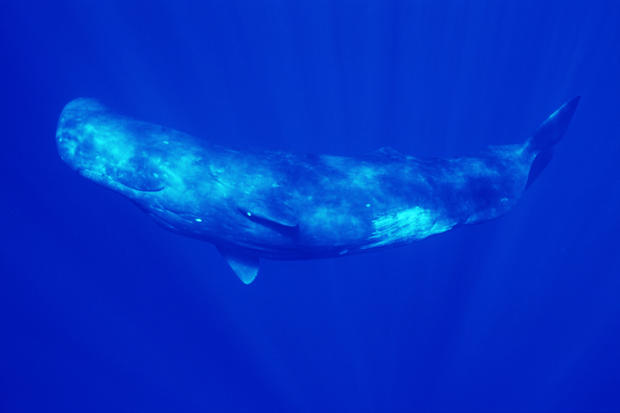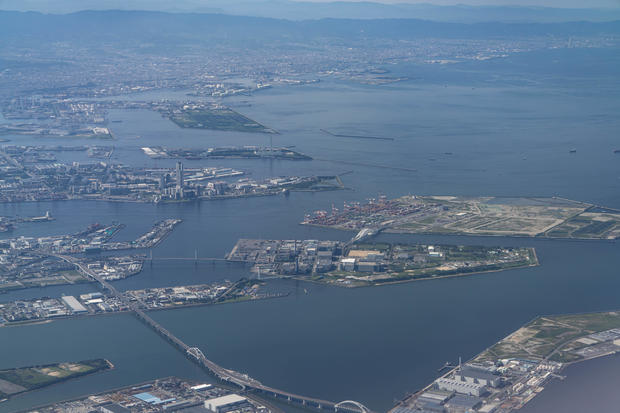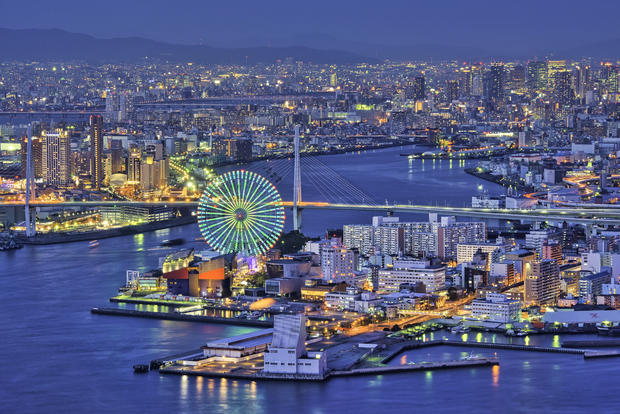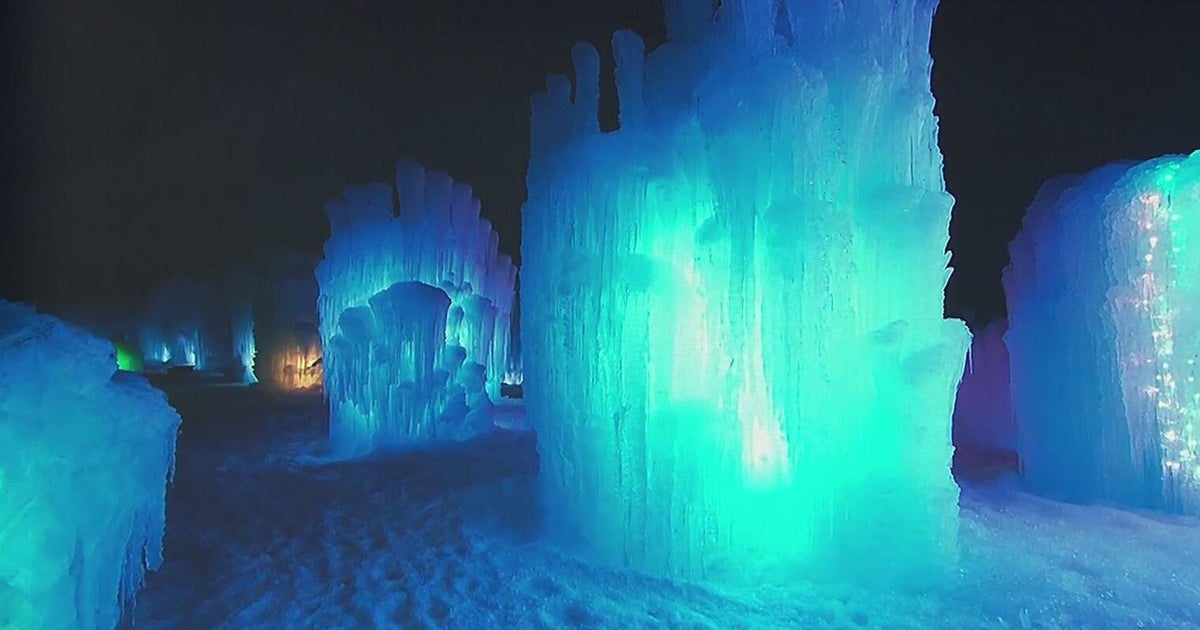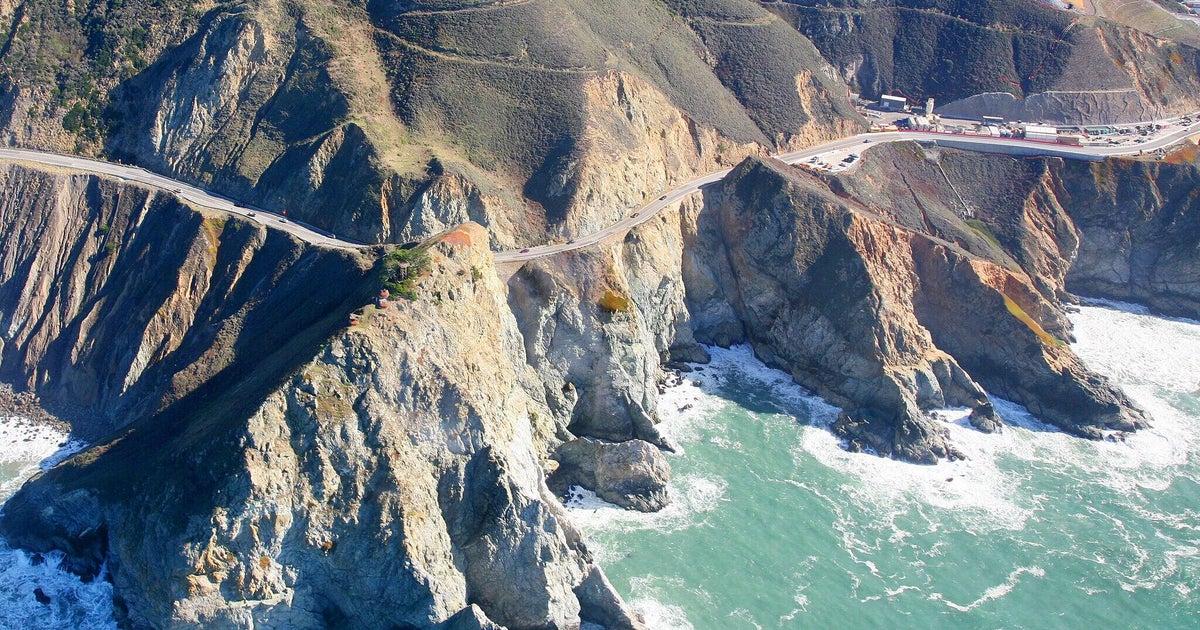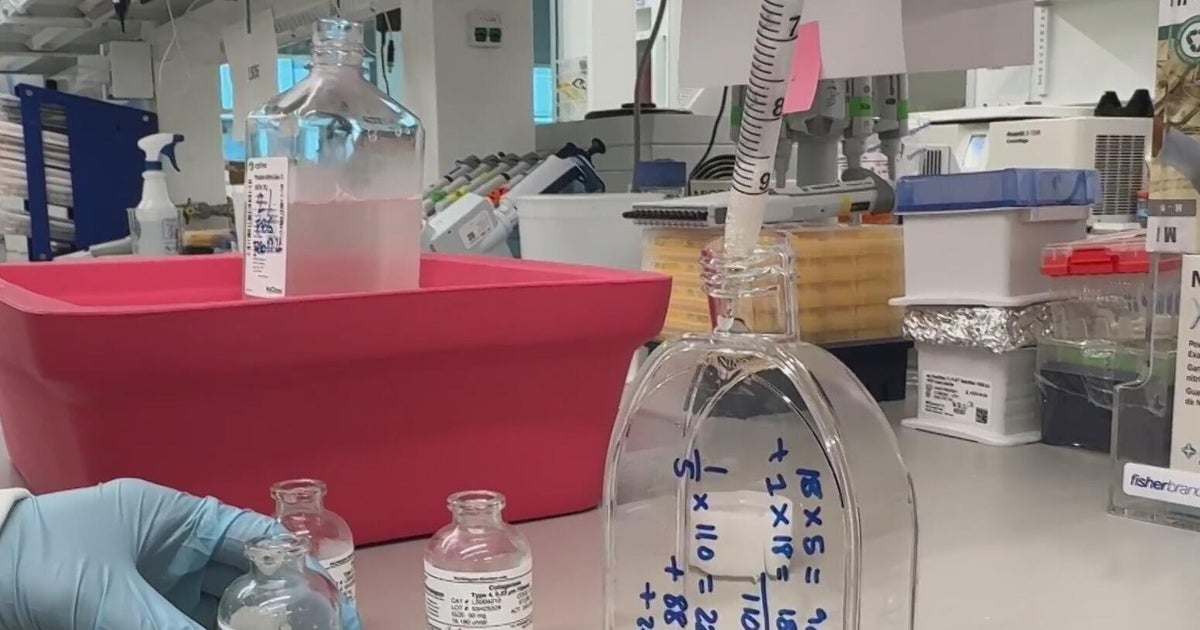Sperm whale's slow death trapped in maze-like Japanese bay raises alarm over impact of global warming
Tokyo — The slow demise of a stray whale that spent its last days circling Osaka Bay not only saddened TV viewers across Japan, it also alarmed cetacean experts who called the whale the latest casualty of a warming planet.
"Whales used to lose their way every three years or so," Yasunobu Nabeshima, a visiting researcher at the Osaka Museum of Natural History, told CBS News. "Until now it was a rare phenomenon. But these incidents have increased."
This month's tragedy marked the second case in as many years.
Nabeshima said global warming has reduced the temperature differential between the Pacific Ocean and Osaka Bay, rendering the powerful Kuroshio Current "a warm-water conveyor belt" that propels whales from their usual deep ocean haunts into the shallow waters along the coast.
The most recent episode began in mid-January, when the sperm whale — one of the world's heaviest animals — was first sighted off the coast of Nishinomiya City in Hyogo Prefecture. TV cameras and local authorities intently tracked the doomed whale as it swam futilely eastward toward Osaka.
Deprived of its primary food, giant squid, the whale's spout grew noticeably listless.
Unlike Japan's easy-to-navigate harbors like Kobe, Osaka Bay, which serves Japan's third-largest city, is a maze of artificial islands and landfilled peninsulas, packed with theme parks and shopping malls as well as warehouses and industrial plants. It's effectively a death trap for marine mammals, with numerous nooks and crannies and bounded by wharves and breakwaters that can make it impossible for the creatures to find their way back out to the blue water.
Another sperm whale died near the mouth of the Yodo River in Osaka in January 2023. Nabeshima, of the Osaka museum, told CBS News that a pod of short-beaked common dolphins ended up stuck in Osaka Bay last fall and they could be seen from Yumeshima, an artificial island and site for Expo 2025, which opens in April. Sea turtles have also become stranded in the area.
The severely emaciated body of the latest sperm whale casualty, a male that weighed over 30 metric tons and measured 50 feet in length, was recovered and temporarily buried after officials decided it would be cheaper than hauling the carcass out to sea. After two years, the skeleton will be recovered and donated to a local museum.
Stray whales can be a jumbo-sized headache for local governments. The cost to taxpayers of the offshore burial for last year's stranded sperm whale was more than half a million dollars — 10 times the cost of a land burial, according to the Mainichi daily newspaper.
TV viewers watched in real time as the whale, lying on its side, its enormous jaws open in a "V," was tethered to the wharf and then carefully placed in an enormous sling. In a delicate procedure lasting over an hour, an oceanside crane gingerly lifted the carcass and placed it onto a flatbed truck, which carried it to its temporary resting place.
A researcher told the local network MBS TV that the creature would first undergo a forensic analysis to determine its cause of death, age, history of injuries and illness and a DNA test to determine its origin. The whale that became trapped last year was 46 years old. Sperm whales have been recorded to live as long as 62.
Experts also planned to search the creature's intestines for chunks of ambergris, an extremely rare and strange waxy substance produced in sperm whales from undigested pieces of squid and other cephalopods. Known as "floating gold" and found in only 1 to 5% of sperm whales, ambergris is used in French perfumes. In 2021 one chunk sold for $1.5 million.
Scientists have been calling for new measures to keep the mighty animals out of harm's way, including sensor-activated "acoustic deterrent devices" placed at the Kii Strait, the entryway to the Inland Sea from the Pacific Ocean, to prevent the whales venturing near the coastline.
